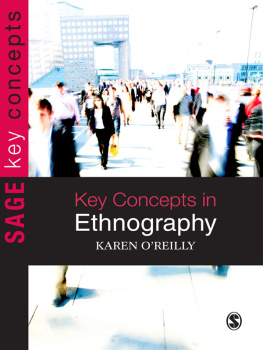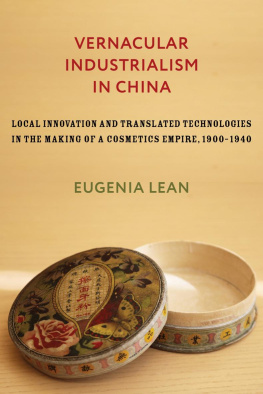Kim Fortun - [Article] Ethnography in Late Industrialism
Here you can read online Kim Fortun - [Article] Ethnography in Late Industrialism full text of the book (entire story) in english for free. Download pdf and epub, get meaning, cover and reviews about this ebook. year: 2012, genre: Science. Description of the work, (preface) as well as reviews are available. Best literature library LitArk.com created for fans of good reading and offers a wide selection of genres:
Romance novel
Science fiction
Adventure
Detective
Science
History
Home and family
Prose
Art
Politics
Computer
Non-fiction
Religion
Business
Children
Humor
Choose a favorite category and find really read worthwhile books. Enjoy immersion in the world of imagination, feel the emotions of the characters or learn something new for yourself, make an fascinating discovery.
- Book:[Article] Ethnography in Late Industrialism
- Author:
- Genre:
- Year:2012
- Rating:5 / 5
- Favourites:Add to favourites
- Your mark:
- 100
- 1
- 2
- 3
- 4
- 5
[Article] Ethnography in Late Industrialism: summary, description and annotation
We offer to read an annotation, description, summary or preface (depends on what the author of the book "[Article] Ethnography in Late Industrialism" wrote himself). If you haven't found the necessary information about the book — write in the comments, we will try to find it.
[Article] Ethnography in Late Industrialism — read online for free the complete book (whole text) full work
Below is the text of the book, divided by pages. System saving the place of the last page read, allows you to conveniently read the book "[Article] Ethnography in Late Industrialism" online for free, without having to search again every time where you left off. Put a bookmark, and you can go to the page where you finished reading at any time.
Font size:
Interval:
Bookmark:
ETHNOGRAPHY IN LATE INDUSTRIALISM
Think about the timing. The 1984Bhopal disastermarking the risks of industrial order, and the already degradedstate of industrial infrastructure. The American plant in central India wasunderdesigned for safety, and had not been maintained. The 40-ton tank thatreleased its contents into the air of a sleeping city on December 3, 1984 iswhere the many failures of many involved systems came together, at a boil(Fortun 2001)
The Bhopal plant site today isdecrepit and eerie. The old control room is open-air and crumbling. The oldpiping configuration still stands, rusted; former Union Carbide worker T. R.Chouhan can still narrate its workings, pointing out the pathways and juncturesleading to the reaction in Tank 610. On the perimeter of the site, an old wastedisposal site still oozes chemicals (Centre for Science and the Environment[CSE] 2009). The smell is truly worse than shit. It is the smell of lateindustrialism. Children play and cows graze within it (see Figures 1 and 2).

Figure . Tank 610at the old Union Carbide plant in Bhopal India. Forty tons of toxic methylisocyanate were released from this tank in the early morning hours of December3, 1984.
Zoom out to picture Delhi. New,gated communities house a multinational corporate elite. The future they workfor, that they have anteriorized, is that promised and motored byneoliberalism, bolstered by digital infrastructure and wealth but stillenergized by coal and oil. There are many more cars on the road. And increasingrates of asthma. People cant breathe. Another sign of late industrialism (CSE2011).
And people cant think. Accordingto a survey of American Environmental Values sponsored by the Sierra Club andother environmental organizations, Americans are paralyzed by issue complexity.The survey also reports that libertarian values are ascendant over communalvalues (SRI Consulting 2006). Complexity, but little collectivity. Not a greatcombination.
This is a world in which ClarenceThomas, former attorney for Monsanto, becomes a U.S. Supreme Court Justice. Aworld in which Iraqi farmers are told that they are required to plantprotected crop varieties, defined as new, distinct, uniform and stableasMonsanto seeds. Seed saving was made illegal; contracts to purchase herbicides,insecticides, and fertilizers were also required (Sourcewatch n.d.). Thecomplexity of these conditions, the entanglementsof business and government,of law and politics, of war and farming, of natural and technical systemsisstunning, and sobering.

Figure . Degradedcomponents of the Union Carbide pesticide plant in Bhopal, India. The site isnow abandoned, but remains contaminated with pesticides, chlorinated benzenes,and heavy metals. Groundwater serving local communities is also contaminated.
This is late industrialism, whereweve come since 1984.
Again, think about the timing:1986, Clifford and Marcuss Writing Culture, a call to rethink thoughtaboutanthropology and ethnography, authority and the purpose and responsibilities ofscholarship. It was historically attuned, and a call to remain historicallyattuned, a call to always ask about the conditions in which ethnography isproduced, and must work within, a call to recognize how discursive forms,including those of ethnography, stage, direct and limit, what is said and notsaid, who is heard and benefits, who and what remains subaltern, outsidearticulation. It embodied and animated what has become known as the languageturn in the human sciences.
The original critique wasdirected at the conceptual, discursive, and social forms of what could becalled high industrialism. The concern was with discursive exclusion and thepromise of polyvocalism, with ways around the disjuncture between dominant waysof understanding the world, and what ethnographers encountered on the ground.
How, today, do we both stay withand update the call? How, today, at a time when social order and sensibilityare worked out on talk shows, a time in which we are Outfoxed (2004) by thenews, and even the best of coverage insists on balance, granting equal timeto those few who refuse to believe scientific evidence of climate change,working with constructs of fairness and appropriateness that embody simple tothe point of simplistic notions of democracy and truth (Boykoff and Boykoff2004).
It is also a world noisy with newmedia, streaming through products with planned obsolescence (Slade 2006). Cellphones and iPods last a year or two. In
2009, when broadcasters switched to digital TV signal,millions of analog TVs became garbage. Electronic waste piles up and circulatesglobally, leaching toxins into humans and animals, soil, air and water.
The pipes that carry water to andwaste away from households, hospitals, schools and businesses are now aging,even in metropoles like Washington, D.C. The D.C. sewer system was built in1889. The average D.C. water pipe is 77 years old (Halsey 2012). Across theUnited States, water and sewage systems havent been updated; they leak andoverflow. And they have no way to deal with what now passesthrough them: water laced with runoff from roads and effluents frommanufacturing plants, but also with pharmaceutical residues, includingsynthetic hormones (Zota 2010). Amphibians are the new canaries in the coalshaft, exhibiting skewed sexual development, and extra limbs (Lanoo 2008;Slater 2012). Queer, in a way that cannot be applauded.
And it is a world of even moreexperts. A world in which cadres of well- trained men and women carry outhighly specific functions that maintain the technical and economic conditionsof our times. People specialize in very particular domains of production,spending their days immersed in the information flows and practices ofbiomedical care for asthma, of transportation engineering, of the design ofconvenience stores or shopping malls. There is incredible particularity, andincredible complexity. Incredible skill and pervasive deskilling.
Much of the infrastructure, manyof the paradigms that have held it up, are exhausted. Things are falling apart,again.
What is the task of ethnographyat such a moment?
How can we leverage theaffordances of ethnography to understand and engage a late industrial world?How, particularly, can we leverage understanding of how ethnography works asarticulated in Writing Culture, in sync with a 1980s flurry of feminist andpostcolonial criticism? What would make ethnography appropriate to thehistorical conditions in which we find ourselves today? What designs on/ofethnography should we cultivate?
I write hereof leveraging,affordances, how things work, appropriateness and designfrom within Scienceand Technology Studies, where many of us love, and love to study technology,understood expansively. The word technology comes from Greek oo(technologa); from (tchn), meaning art,skill, craft, and -o (-loga), meaning studyof. Technology, from this vantage point, is something crafted to enable anddirect, routing desire, making new things possible and possible to imagine. Andit should, etymologically speaking, have an in-built reflexivity, a study ofthat which is crafted, and of how craft happens and should happen, that occursalongside the making and use of the technology.
Ethnography can be thought of asa technology in these terms, as a crafted means through which things areenabled. And ethnography, like other technologies, can be designed in differentwaysto draw out what is, the state of things, or to show what is at odds withextant theory, ethnography as cultural critique (Marcus and Fischer 1986).Ethnography, like other technologies can also be designed to challenge andchange existing order, provoking new orderings of subjectivity, society andculture, having what Steve Tyler, in Writing Culture, called a therapeuticeffect (1986).
Font size:
Interval:
Bookmark:
Similar books «[Article] Ethnography in Late Industrialism»
Look at similar books to [Article] Ethnography in Late Industrialism. We have selected literature similar in name and meaning in the hope of providing readers with more options to find new, interesting, not yet read works.
Discussion, reviews of the book [Article] Ethnography in Late Industrialism and just readers' own opinions. Leave your comments, write what you think about the work, its meaning or the main characters. Specify what exactly you liked and what you didn't like, and why you think so.

![Kim Fortun [Article] Ethnography in Late Industrialism](/uploads/posts/book/62624/thumbs/kim-fortun-article-ethnography-in-late.jpg)




